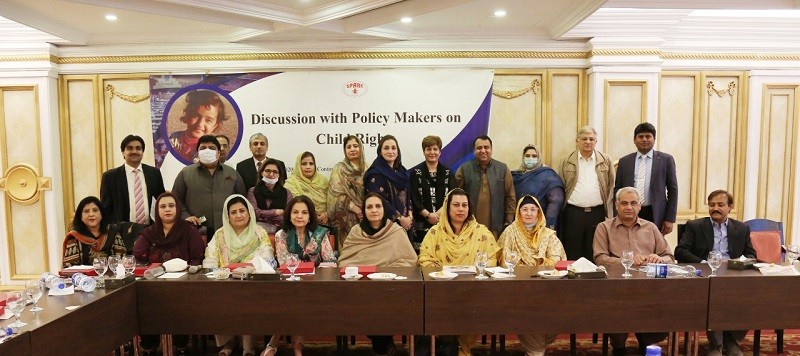By Hamid Khan Wazir
ISLAMABAD: Dr. Nausheen Hamid, Parliamentary Secretary, Federal Ministry National Health Services Regulations and Coordination termed ‘The Zainab Alert, Response and Recovery Bill, 2020’ and ‘Ehsaas Undergraduate Scholarship Program’ as some key steps taken by the government to safeguard the rights of Pakistani children.
She made these remarks while speaking at a two-day roundtable discussion with policymakers on child Rights organized by the Society for the Protection of the Rights of the Child (SPARC) in Islamabad on Friday.
She also mentioned that the government is also keeping the damage caused by the COVID-19 pandemic into consideration.
Speaking on the occasion, Mehnaz Akbar Aziz, Member, National Assembly, stressed the need that policymakers will have to set aside their differences and work together to safeguard the future of Pakistan which is possible only through the provision of child rights.
She mentioned policymakers need to ensure that overall spending on child rights especially the percentage of developmental budgets in education, child health and nutrition, and child protection is increased.
She further added that the policymakers also need to ensure that 76% of child-related laws that are not in compliance with UNCRC are corrected and implemented properly.
Sajjad Ahmed Cheema, Executive Director, SPARC said that Pakistan has approximately 47% of Pakistan’s total population comprises children under the age of 18.
Unfortunately, Pakistan hasn’t delivered on its international and national commitments towards child rights however the current government is striving to change this situation.
Afshan Tehseen Bajwa, Chairperson, National Commission on Child Rights (NCRC) mentioned that Pakistan ratified the United Nations Convention on the Rights of the Child (UNCRC) in 1990 but until 2017 there was no national-level body to monitor the state of children in Pakistan according to the requirements of CRC and other international commitments.
The formation of this commission is a step in the right direction for safeguarding the rights of the children and the commission must be strengthened at earliest.
Malik Imran Ahmed Country Head Campaign for Tobacco-Free Pakistan highlighted the increasing trend of tobacco consumption among children.
He shared that despite becoming a Party to the WHO Framework Convention on Tobacco Control (FCTC) in 2005, many of Pakistan’s measures to control tobacco consumption is not completely aligned with FCTC.
Due to this monitoring and implementation of laws, around 1,200 Pakistani children begin smoking every day and approximately 166,000 people are dying every year because of tobacco-induced diseases.
